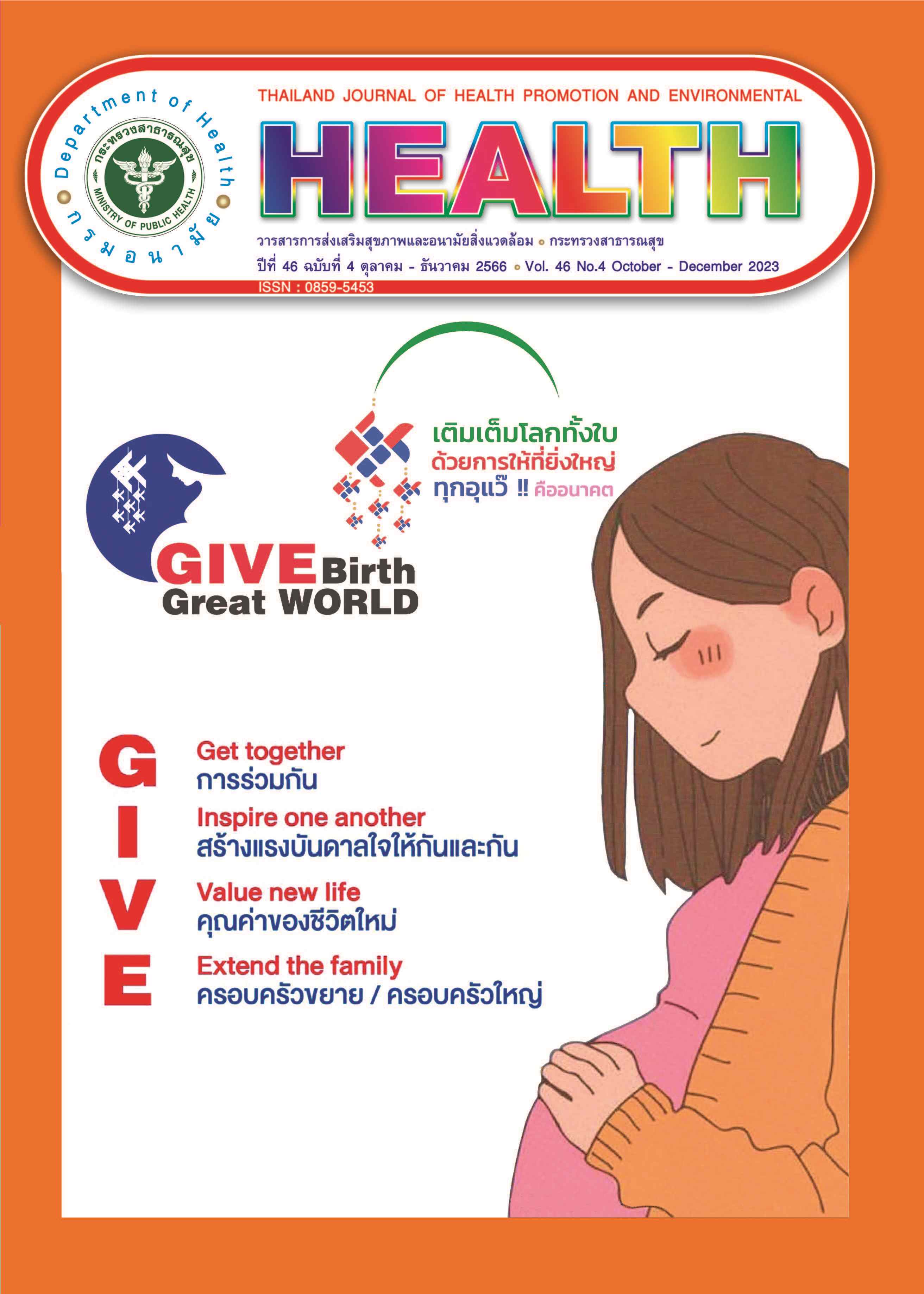The Evaluation of Child Development Project on the Auspicious Occasion of Her Royal Highness Princess Maha Chakri Sirindhorns 5th Cycle Birthday Anniversary on 2nd April 2015 in Health Region 6
Keywords:
development, Early childhood, Child caretakers, Public health personnelAbstract
Children are a valuable resource for the country's development. For a child to grow into a quality adult, they must undergo complete development, encompassing physical, mental, emotional, social, and intellectual aspects. This mixed methods research explores the development of children at 9, 18, 30, 42, and 60 months. The study focuses on Child Development Promotion Behavior according to the Child Care Handler's DSPM Manual and the management system of the Child Development Project on the Auspicious Occasion of Her Royal Highness Princess Maha Chakri Sirindhorn's 5th Cycle Birthday Anniversary on April 2, 2015.The sample group consists of child caretakers and early childhood children aged 9 months to 5 years 11 months 29 days, totaling 362 people and 14 public health personnel. The research results reveal that most children had normal development (75.14%). Notably, 93.90% of children aged 9 months demonstrated normal development, while 43.24% of children aged 42 months had suspected developmental delays. Child caretakers who received DSPM manuals numbered 236 (65.19%), with 44.48% receiving manuals at postpartum wards. Furthermore, 55.25% of caretakers received explanations for using the DSPM manual, and 52.21% were understanding when explanations were provided. Regarding manual usage, 52.49% of caretakers read the DSPM Manual, and 33.70% read it monthly according to their child's age, while 32.32% used it occasionally.The Child Development Promotion Project's management system highlights the empowerment of health workers through training in DSPM manual use. This training is facilitated by provincial public health offices and local host hospitals, supported by the Child Development Care System Manager. Public health personnel provide guidance on surveillance and promotion of child development according to the DSPM manual.The project's strengths lie in collaborative networking between district-level committees, local government organizations, and a robust network of village health volunteers working together to promote child development. However, a notable weakness is observed among parents who fail to understand and prioritize monitoring and promoting child development. To address this, the DSPM manual management system should be expanded to cover all children. Additionally, knowledge and skills in using the DSPM manual should be provided to parents during the postpartum period, with ongoing monitoring and support by network teams at the local level during postpartum follow-up visits.
Downloads
Published
Issue
Section
License
Copyright (c) 2023 Thailand journal of Health Promotion and Environmental Health

This work is licensed under a Creative Commons Attribution-NonCommercial-NoDerivatives 4.0 International License.

